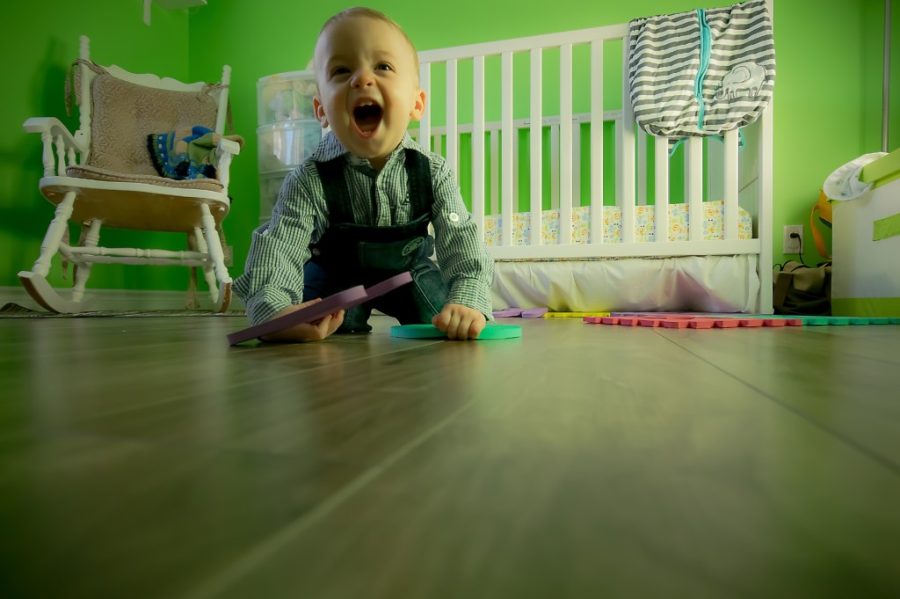Do you ever feel like you are struggling to communicate with your child? Are constant tantrums challenging your daily routine or interfering with your child’s ability to learn and function?
In this big, fast-paced world full of distractions and frustrations, it is easy to forget that everything can look and feel so much bigger to a child. What happens when we don’t have the tools we need to cope with big feelings and challenges? When we don’t understand these feelings or the environment and its triggers? When we aren’t able to communicate what we feel or think or need appropriately? Now, conversely, imagine something wonderful happens, but you are unable to share it because you lack the communication skills. This has the potential to turn an exciting moment into a frustrating one.
What can I do?
If you relate to any or all of the above scenarios as you go through your day, you may find yourself wondering what you can do to help your child. Or perhaps you feel you’ve tried it all and are wondering if there is more you haven’t considered. It is important to increase opportunities and encourage language throughout your child’s day. Model language during times when you know there is a need that must be communicated, as well as during casual routine and play. Some strategies you may try include:
- Encourage requesting by withholding desired items. By creating an appropriate requesting routine, you establish the expectation and minimize push-back or avoidance later. You can do this by keeping certain items out of reach (focusing on toys with parts). Label and hold up choices and wait for your child to initiate request prior to giving desired item.
- Practice auditory comprehension/recall of information during reading. This provides a concrete scenario for your child with clear responses that you can prompt to help establish these skills and later generalize. Have your child point to object/action/descriptive concepts during reading, respond to ‘wh’ questions, and retell what happened on each page.
- Model articulation of sounds/intelligibility. Sometimes frustration comes because a child’s language is frequently misunderstood. Incidentally, this may lead to the child refusing to attempt communication or simply choosing tantrum behaviors that have offered the desired result more easily in the past. Children rely on models when learning and perfecting language. Try modeling by exaggerating production of sound — start with the difficult sound in isolation, then work on syllables, words and phrases as your child experiences success.
- Review and practice social skills. Talk about the importance of eye contact/nonverbal communication, discuss emotions/facial expressions in stories and movies, discuss hypothetical situations and what you should do, and practice initiating and maintaining appropriate topics in conversation. Knowing what is expected and what you can expect from others in social situations helps relieve anxiety and primes the child for upcoming situations.
- Promote fluency with visual supports. Use visuals (e.g., a straight vs bumpy road or slide) when teaching words and discuss the importance of slowing down. Model it in everyday speech, reinforce “smooth” speech, model words/phrases and have child determine whether your speech is “bumpy” or “smooth” to increase awareness.
- Increase vocabulary with visual prompts or picture symbols. Recalling the correct words is difficult at times. Icons depicting a variety of concepts can assist students in expressing and expanding their message in order to be understood. Picture exchange to request or respond to interactions can help nonverbal children communicate.
What if this isn’t enough?
The answer you’re looking for may lie in speech therapy and applied behavior analysis (ABA). These therapies are commonly recognized for being the most effective therapies in treating children on the Autism Spectrum; however, there are a variety of other benefits to these therapies. Speech therapy benefits kids who might have issues with social interaction, eye contact, feeding delays, receptive/expressive language delay, articulation delay, auditory processing disorder, oral motor weakness, stuttering, apraxia and phonological disorders. Some options for treatment include individualized therapy and social skills language groups. The many benefits of speech therapy include improvement in each of the following areas:
- Functional communication (e.g, requesting, labeling, responding to questions)
- Auditory comprehension and recall of information during story reading
- Following directions and appropriate response to questions
- Receptive and expressive vocabulary
- Articulation of sounds and intelligibility
- Understanding of letters/sounds/words and word parts (phonology)
- Social communication/pragmatics (e.g., understanding nonverbal communication, understanding emotions/facial expressions, being able to join and participate in a group, maintaining appropriate topics in a conversation)
An Applied Behavior Analyst may work independently or in collaboration with a speech therapist and/or other providers to address skill deficits and behavioral challenges. The goal of ABA is to bring about meaningful and positive changes in behavior. More specifically, techniques and interventions are used to:
- Increase desired behaviors
- Reduce maladaptive behaviors
- Teach new skills (e.g., language, attention, compliance, daily living, social)
- Maintain established behaviors
- Transfer behaviors from one situation or response to another
- Foster independence
ABA is regarded among the most successful strategies for teaching children with disabilities and has proven beneficial for children and families affected by Autism Spectrum Disorders, Anxiety, ADHD, Conduct Disorders and Behavior Challenges, Disorders and Difficulties related to Sleep, Tic Disorders, and many more.
My child is so young, why should I be concerned so early?
Studies have shown that early intervention results in the best possible outcomes for children with a variety of challenges. A child’s brain plasticity is developing rapidly between the ages of 1 and 5 years old. It is during this time that social and emotional development establish the foundations for learning, communication, behavior, and future cognitive development.
How do I find a collaborative team to work with my child?
Although both therapies are critical in treating children with communication and behavior delays, opinions between professionals are often divisive in nature. At Paper Airplane Behavioral Services and Little Talkers Inc., we strive to provide consistent collaboration while addressing communication and behavioral goals. We believe programs should be meaningful to each child and family to encourage motivation and create maximal opportunities to practice goals. We believe that consistency is a vital key to any treatment program and outcomes are enhanced when providers and families utilize a team approach. Whether you need direct therapy services, a social skills group, or just need a behavior plan to implement at home, Paper Airplane Behavioral Services, PA and Little Talkers Inc. are here to help! We encourage you to reach out to us for a phone or email consultation to determine if our services are right for you.
About the Author
 Erin Lamblez is a Speech Language Pathologist and the owner of Little Talkers Inc. She graduated from FSU with a Bachelors and Masters Degree in Communication Disorders. She is a licensed speech therapist in the state of Florida and certified with the American Speech Language Hearing Association (ASHA). She has worked in the schools, home, and outpatient setting for over 10 years. She has experience with all ages and various disorders including: language delay, articulation delay, phonological disorders, fluency disorder, feeding delay, apraxia, autism, auditory processing disorder, and others. She has worked in the Communication Social Skills (CSS) classrooms in Duval County Schools for 7 years. She has certification in Picture Exchange Communication System (PECS) 1 & 2 and has a passion working with early language delays and Autism. She is offering 8-week Social Skills language groups for students ages 2-10 beginning in the fall of 2017.
Erin Lamblez is a Speech Language Pathologist and the owner of Little Talkers Inc. She graduated from FSU with a Bachelors and Masters Degree in Communication Disorders. She is a licensed speech therapist in the state of Florida and certified with the American Speech Language Hearing Association (ASHA). She has worked in the schools, home, and outpatient setting for over 10 years. She has experience with all ages and various disorders including: language delay, articulation delay, phonological disorders, fluency disorder, feeding delay, apraxia, autism, auditory processing disorder, and others. She has worked in the Communication Social Skills (CSS) classrooms in Duval County Schools for 7 years. She has certification in Picture Exchange Communication System (PECS) 1 & 2 and has a passion working with early language delays and Autism. She is offering 8-week Social Skills language groups for students ages 2-10 beginning in the fall of 2017.

Marcelle Medina-Smester is a Board Certified Behavior Analyst (BCBA) and founder of Paper Airplane Behavioral Services. She graduated from Valdosta State University with a Bachelor’s degree in Psychology in 2008. Soon after graduating, Marcelle began her experience in the field of Applied Behavior Analysis (ABA) under the direction and supervision of experienced BCBAs and Licensed Psychologists. During this time, she completed necessary coursework and obtained board certification as an Assistant Behavior Analyst (BCaBA). She later went on to further her education at the University of North Carolina Wilmington (UNCW) and graduated in 2013 with a Master’s degree in Clinical Psychology and Applied Behavior Analysis (ABA). This unique program not only provided education and experience in the basic conceptual understanding and application of Behavior Analysis and allowed Marcelle to satisfy all requirements for certification as a Board Certified Behavior Analyst (BCBA) but also provided valuable instruction and skills in Clinical Psychology. Over the past 9 years, Marcelle has served both typically developing and special needs children as clinician and consultant as well as director of a child development center in Florida. Marcelle is dedicated to providing quality and evidence-based services in a variety of settings to reduce problem behaviors, increase adaptive functioning, and improve quality of life.

















